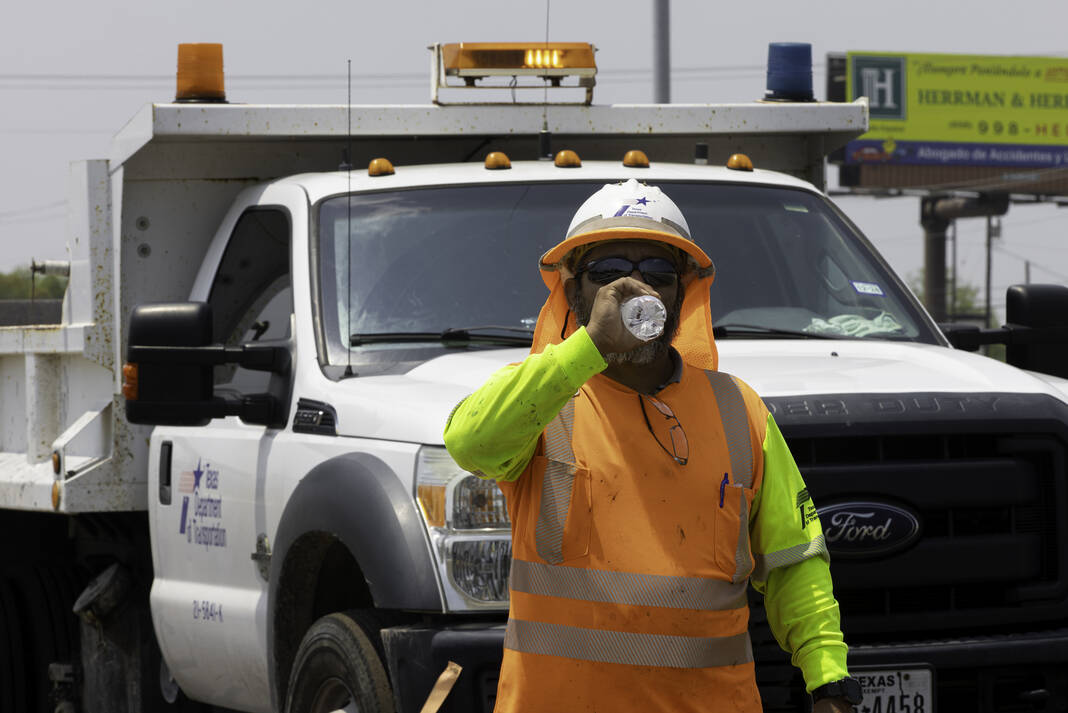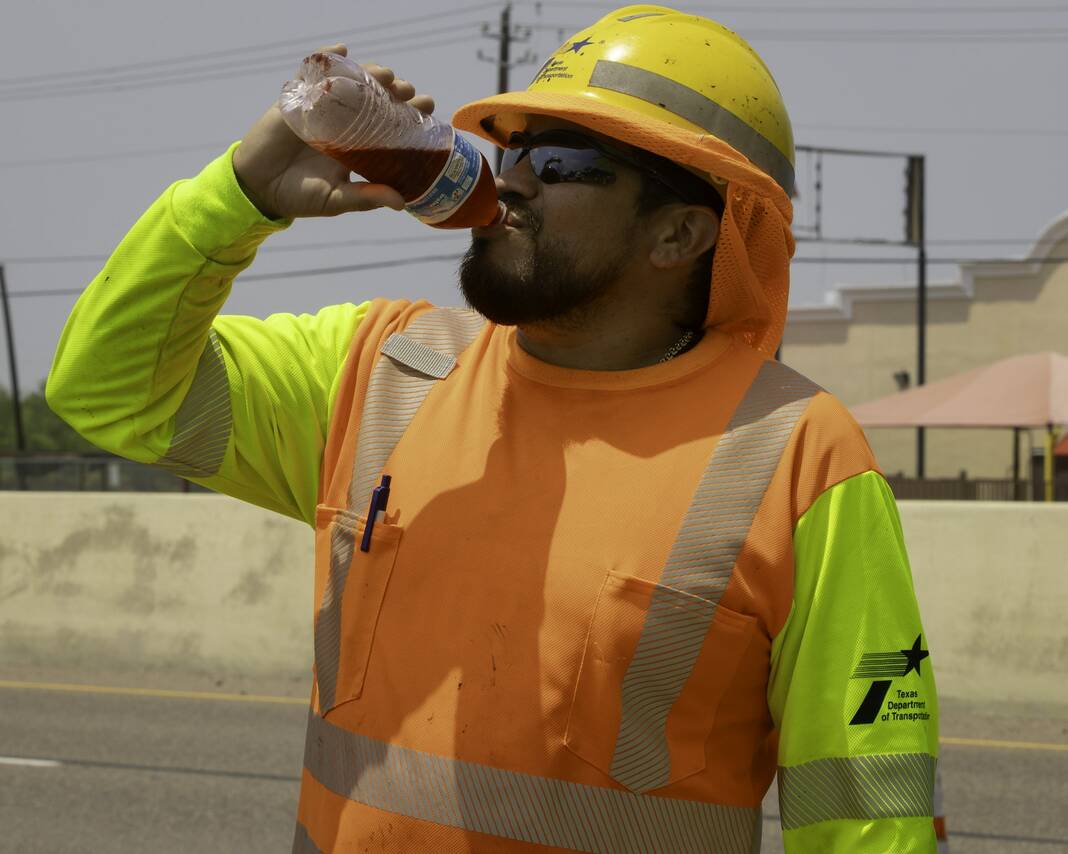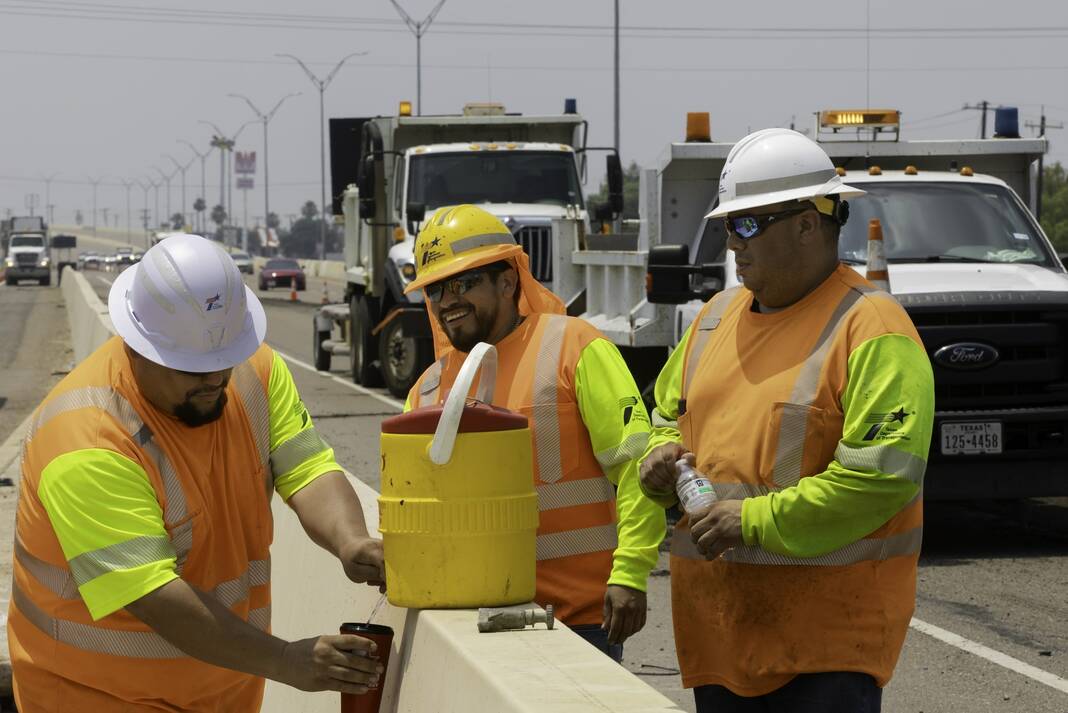|
Only have a minute? Listen instead
Getting your Trinity Audio player ready...
|
It’s inescapable; well, if you’re outdoors.
With temperatures rising to the high 90s and low 100s, and feels-like temperatures somewhere between 106 and 113 in recent days, it’s hard not to find someone complaining about the extreme heat conditions ahead of summer.
And health hazards remain an ever-present worry for those who work or compete outside.
Mario Reyna, a TV broadcaster for McAllen ISD and retired administrator, witnessed a possible case of heat exhaustion while broadcasting a baseball game on Saturday. That’s when the umpire for the regional semifinals game between McAllen Memorial vs. Tivy High appeared to be sick after spending several hours officiating the ball games outdoors.
He recalled the temperature being around 90 degrees as the first game kicked off around 4:45 p.m.
“He began as a second base umpire at that first game at 5 p.m.,” Reyna said, adding that the first game lasted about three hours.
That same umpire was later behind the home plate during the third game which lasted about four hours, ending at 1:30 a.m.
Throughout the games the umpire was officiating he was required to wear protective gear including a chest protector, a chin guard, a mask and other gear.
The umpire was behind the plate for at least nine hours, according to Reyna, who said the temperature only intensifies around turf despite it cooling down at some point.
“A lot of high school fields have synthetic turf, which is not real grass, and that means it’s going to radiate the … heat a lot more. So the temperature could be 95 but on the field it could be maybe 10 degrees hotter,” Reyna said.

He added that the umpire began to feel symptoms of heat exhaustion and chose to step out of the game for both his health and to keep the game fair.
“He just felt like he was getting fatigued and that he maybe wasn’t seeing the ball the way he really wanted to see it,” Reyna said.
These are the type of scenarios officials hope to avoid as the summer heat continues to increase.
Reyna explained that the UIL has established safety protocols to prevent heat exhaustion and other heat-related illness.
Protocols include schools having an emergency action plan to address heat emergencies, which include onsite rapid cooling methods such as cold-water immersion.
Schools must also have unrestricted water access to athletes at all times as well as rest breaks that include unlimited hydration and no activity.
According to the U.S Department of Health and Human Services, extreme heat will not be going away anytime soon, in fact it is here to stay and is estimated to become “more frequent and intense in the coming decades.”
The research also shows that the increased heat has led to more heat-related deaths in the U.S. with approximately 1,602 deaths in 2021, 1,722 in 2022 and 2,302 in 2023.
Excessive heat can lead to various heat-related illnesses including heat stroke, heat exhaustion, cramps, fainting and rashes.
Area doctors have previously said that the best way to beat the heat is to stay well-hydrated, take frequent breaks or move to shaded areas if outdoors, as well as being aware of signs of heat-related illness.

Symptoms include excessive sweating, confusion, high body temperatures, fast or a strong pulse, muscle cramps or spasms, headaches, dizziness, nausea or even losing consciousness.
The Texas Department of Transportation has also established safety protocols to prevent workers, who often work in hot environments for long periods of time, from experiencing heat-related illnesses.
According to Ray Pedraza, public information for TxDOT, the department has constantly educated employees on the warning signs of heat exposure as well as recommending employees — such as road crews — to drink 8 ounces of water every 15 to 20 minutes. This adds up to about 3 gallons of water per person during a shift.
Pedraza explained in an email that TxDOT will typically schedule work early in the morning to prevent the crew from working during the hottest parts of the day.
“If a situation becomes unsafe, the agency will postpone work to protect employees,” Pedraza said, adding that they also provide additional safety material including shade tents, special clothing designed to shield employees from the sun, cooling towels and bandanas, neck shields, fluids to replenish electrolytes, and other materials.




